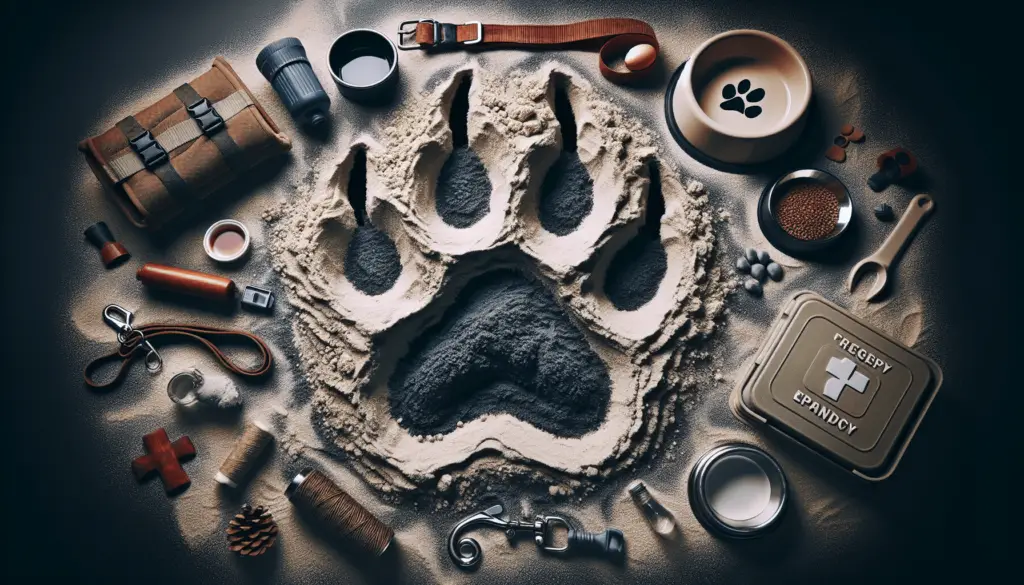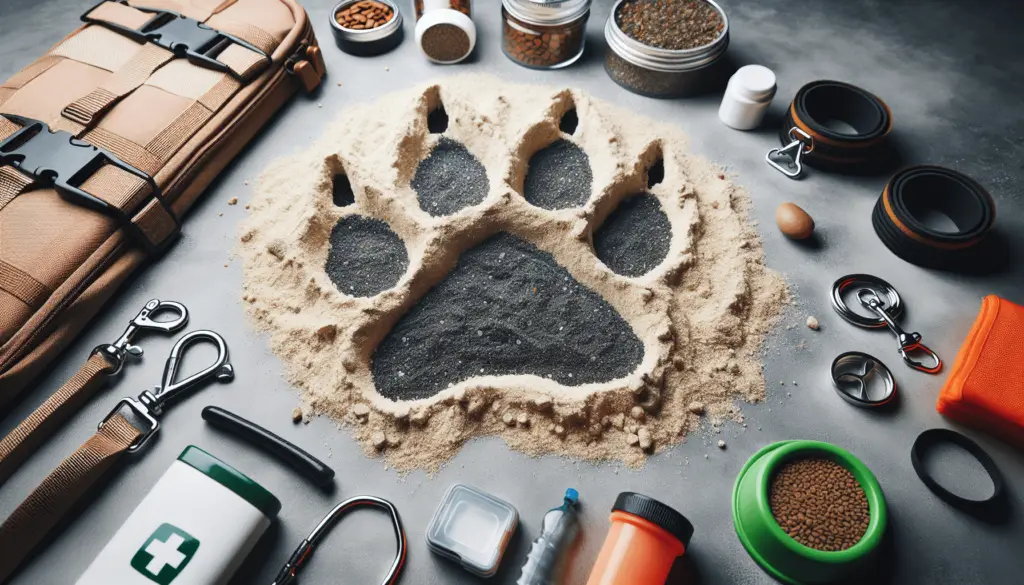In the face of unpredictable and often devastating natural disasters, it is essential for pet owners to have a solid plan in place for the safety and well-being of their furry companions. From hurricanes and wildfires to floods and earthquakes, these events can quickly upend our lives and put our pets at risk. That’s why understanding the importance of natural disaster preparedness and taking proactive measures to protect our beloved pets is crucial. In this article, we will explore practical tips and essential resources to help you be fully prepared to navigate any natural disaster with your pet’s safety as the top priority.
Emergency Evacuation Plan
In the event of a natural disaster, it is crucial to have a well-thought-out emergency evacuation plan that includes provisions for your beloved pets. Start by identifying local evacuation shelters that allow pets. It’s important to verify this information in advance, as not all shelters accept animals. Create a list of backup shelters in case the primary one is full, ensuring that they also accommodate pets. This will give you peace of mind, knowing that you have options available to safely house your furry friends during an emergency. Additionally, plan multiple evacuation routes to ensure that you have alternative options to reach safety with your pets.
To prepare for evacuation, it is vital to ensure that your pets are comfortable with their carriers or crates. Familiarize your pets with their carriers well in advance by gradually introducing them and making it a positive experience. This will help reduce stress and anxiety during emergency situations. Pack essential items for your pets, including enough food, water, medications, leashes, toys, and any other items they may need. Remember to include comfort items such as blankets, towels, and familiar bedding to help them feel secure and at ease during challenging times.
Pet Identification and Documentation
Proper pet identification is crucial when it comes to preparedness for natural disasters. Ensure that your pets have up-to-date identification tags with your contact information, including your name and phone number. Microchipping your pets provides an added layer of security in case their tags become lost or damaged. This small device can be implanted under your pet’s skin and contains a unique identification number that can be scanned by a veterinarian or shelter. Keeping copies of important documents, such as vaccination records, medical history, and ownership papers, is also essential. Store digital copies of these documents on a secure cloud storage platform to ensure easy access even if physical copies are damaged or lost during a disaster.

Emergency Supplies
Stocking up on emergency supplies is crucial to ensuring the well-being of your pets during a natural disaster. It is recommended to have at least a two-week supply of food and water for your pets. Additionally, include extra supplies for sanitation, such as litter, pads, and waste bags to maintain cleanliness. A pet first-aid kit is also vital to have on hand to address any potential injuries or health concerns. Remember to pack a manual can opener and extra bowls for food and water, as well as blankets, towels, and familiar bedding to provide comfort and security for your pets.
Medication and Medical Needs
If your pets require any medication, it is essential to ensure that you have a sufficient supply to last throughout the duration of an emergency. Keep copies of their prescriptions in case refills are necessary and include any necessary medical supplies, such as bandages or ointments, in your emergency kit. Having a list of emergency veterinary clinics and their contact information is crucial in case your pets require immediate medical attention during or after a disaster. Be sure to keep this list readily accessible.

Appropriate Pet Carriers and Containment
Having the proper carriers or crates for your pets is essential for their safety during evacuations. Each pet should have a properly sized and secure carrier or crate. It’s important to label these carriers with your contact information, including your name and phone number, to ensure that your pets can be easily identified if separated from you. Practice getting your pets comfortable in their carriers well in advance of any emergency. Consider collapsible carriers for easy storage when not in use. Additionally, keep leashes and harnesses readily accessible to ensure you can securely control your pets during an evacuation.
Emergency Contacts
Compile a comprehensive list of emergency contacts, including your veterinarian, local animal control, and trusted friends or family members. Include their phone numbers and addresses so that you can quickly reach out for assistance if needed. It is essential to designate a trusted person to care for your pets in case you are unable to do so during an emergency. Exchange emergency contact information with your neighbors, especially those who also have pets, to create a support network that can aid one another during difficult times.
Pet-Specific Considerations
Understanding your pets’ specific needs and behaviors in stressful situations is key to their well-being during emergencies. Take note of any special requirements or concerns they may have. Some pets may experience anxiety or fear during disasters, and it may be helpful to have calming products or medications on hand to alleviate their stress. Consider portable litter boxes for cats to maintain their hygiene during evacuations. Small animals like rodents or birds may require extra bedding or hiding spots to help them feel safe and secure amidst the chaos.
Communication and Planning
Staying informed of weather alerts and evacuation orders is crucial for planning and staying safe during natural disasters. Sign up for local alerts and have a reliable source of current information. Create a communication plan with family members or friends outside the affected area to ensure that everyone is aware of your whereabouts and well-being. Share your evacuation plans with a trusted neighbor who can keep an eye on your home and pets if you need to evacuate. Research pet-friendly hotels or accommodations in advance, as many shelters may not accept animals. Consider joining online communities or social media groups for pet owners in emergencies to connect with others who may offer support and advice.
Training and Preparedness
Training your pets to respond to emergency commands or signals can significantly improve their safety during an evacuation. Practice evacuation drills with your pets so they become familiar with the process and follow your lead. Expose your pets to different environments and situations to reduce their stress and anxiety levels during emergencies. Familiarize them with car rides or carriers to ensure they are comfortable and calm when traveling. Consider obedience training for better control in emergency situations, as this can help prevent your pets from becoming overwhelmed or frightened.
After the Disaster
Once it is safe to return to your home or the affected area after a disaster, take the necessary precautions to ensure the safety of your pets. Check for potential hazards or debris that could harm them, such as broken glass or exposed electrical wires. Provide comfort and reassurance to your pets during the recovery period, as they may be disoriented or anxious. Monitor them closely for any signs of distress or health issues and seek immediate veterinary attention if needed. If you require assistance in caring for your pets, do not hesitate to reach out to local authorities or organizations that specialize in disaster relief for animals.
Preparing for natural disasters as a pet owner requires careful planning and consideration. By following these comprehensive guidelines and taking the necessary steps to safeguard your pets, you will ensure their safety and well-being during challenging times. Remember, being prepared not only protects your pets but also provides you with peace of mind knowing that you’ve taken the necessary steps to keep them safe in the face of adversity.
